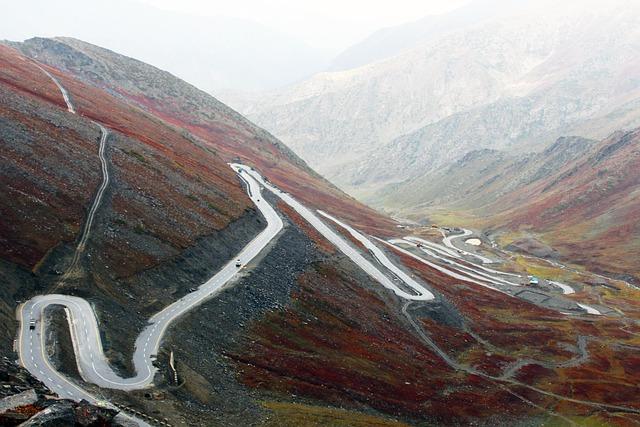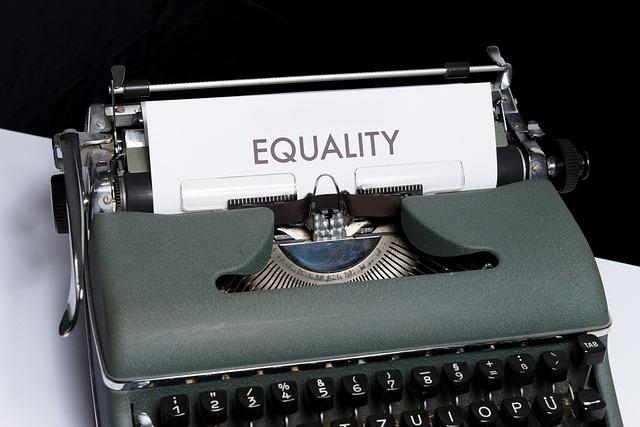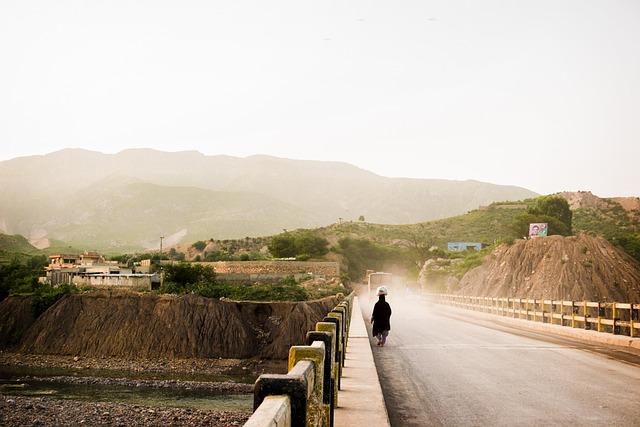In an era where the geopolitical landscape is constantly evolving and the intricacies of international relations shape global dynamics, Pakistan emerges as a pivotal player navigating these tumultuous waters. This nation, often seen through the lens of its historical complexities and strategic geographic position, has evolved from a regional player to a significant contributor in global affairs. From its longstanding partnerships with allies like the United States and China to its efforts in promoting peace in South Asia, Pakistan’s multifaceted role in shaping international relations today is both compelling and consequential. As we delve into the various dimensions of Pakistan’s foreign policy, economic alliances, and security concerns, we uncover how this country is leveraging its position to influence not just regional stability but also the broader narrative of global interactions. In this exploration, we aim to illuminate the nuanced realities of Pakistan’s role on the world stage, providing insight into its ambition and agency in a complex international arena.
Pakistans Diplomatic Maneuvering in a Multipolar World
In the ever-evolving landscape of global politics, Pakistan has adeptly navigated its diplomatic strategies to align with the shifting dynamics of a multipolar world. By recognizing the significance of regional partnerships, Pakistan has focused on strengthening its ties with emerging powers like China and Russia, while also maintaining traditional alliances with the West. This multifaceted approach enables Pakistan to present itself as a pivotal player in regional stability and economic development, as evidenced by key initiatives such as the China-Pakistan Economic Corridor (CPEC) and increased defense collaborations.
Moreover, Pakistan’s participation in various international organizations has allowed it to assert its influence and foster meaningful dialogue on critical issues such as terrorism, climate change, and economic cooperation. The country’s efforts to promote peace and security, particularly in the context of South Asian relations, underline its commitment to creating a balanced geopolitical environment. Through strategic diplomacy, Pakistan has positioned itself as a mediator in conflicts and a participant in crucial global discussions, making it an indispensable player in shaping international relations today. This involves:
- Engagement with BRICS nations to explore new economic opportunities.
- Active role in the Organization of Islamic Cooperation (OIC) to address shared ideological concerns.
- Participation in regional security dialogues focused on counter-terrorism efforts.
- Collaboration with the United Nations to promote sustainable development goals.
| Initiative | Description | Impact |
|---|---|---|
| China-Pakistan Economic Corridor (CPEC) | Infrastructure and investment project enhancing connectivity. | Boosts economic growth and job creation. |
| Peace talks with India | Diplomatic negotiations to resolve long-standing conflicts. | Potential for regional stability. |
| Engagement in climate diplomacy | Collaborating on global environmental challenges. | Strengthens Pakistan’s international standing. |

Harnessing Economic Partnerships for Regional Stability
The strategic landscape of South Asia is continuously evolving, and economic partnerships are at the forefront of fostering regional stability. Pakistan has been a pivotal player, leveraging its geographical advantage and resource potential to form alliances that not only benefit its economy but also contribute to a more secure region. By engaging with neighboring countries and fostering multilateral trade agreements, Pakistan aims to create a web of interdependence that serves as a deterrent against conflict and promotes cooperation. This includes initiatives such as the China-Pakistan Economic Corridor (CPEC), which not only enhances infrastructure but also opens up new avenues for trade and investment.
In addition to the bilateral and multilateral economic collaborations, strong economic ties often lead to cultural exchanges and diplomatic dialogues, further solidifying trust among nations. To illustrate, the following table highlights key partnerships that Pakistan has nurtured to bolster regional stability:
| Partner Country | Key Initiative | Impact on Stability |
|---|---|---|
| China | CPEC Development | Infrastructure boost & economic growth |
| India | SAARC Engagement | Promoting trade and cultural exchange |
| Afghanistan | Trade Agreements | Enhanced economic interdependence |
| Turkey | Strategic Trade Partnerships | Strengthening diplomatic relations |
This strategic focus on economic partnerships helps create a resilient framework for peace, emphasizing collaboration over conflict. As Pakistan continues to engage in these efforts, it positions itself as not only a regional player but also as a catalyst for broader international relations that prioritize stability and mutual growth.

Countering Extremism: Pakistans Central Role in Global Security Initiatives
In recent years, Pakistan has emerged as a pivotal player in the global effort to combat extremism, recognizing that a stable world is essential for its own security and economic prosperity. By engaging with international partners, the nation has fostered a proactive approach that includes both military and soft power strategies. The country’s unique geographic position, bordering regions beset by conflict, enables it to act as a crucial buffer zone while facilitating dialogues that promote peace. Pakistan’s efforts are underscored by a commitment to intelligence sharing, counter-radicalization programs, and community engagement initiatives, which aim to deconstruct the ideologies fueling extremism.
Moreover, Islamabad’s collaboration with global governance institutions showcases its dedication to crafting comprehensive solutions that address root causes of terrorism. This partnership extends to multilateral forums where Pakistan plays an instrumental role in formulating policies that reflect collective interests. Key initiatives include:
- Counter-Terrorism Financing: Implementing stringent measures to curb the flow of resources to extremist groups.
- Rehabilitation Programs: Designing curricula that advocate tolerance and foster peaceful coexistence.
- Regional Cooperation: Actively participating in dialogues with neighboring countries to enhance mutual security.
Through these concerted efforts, Pakistan is not only enhancing its own security environment but also contributing significantly to global endeavors aimed at providing a lasting peace. The intricate efforts highlight a larger narrative: one that sees Pakistan leveraging its strategic assets in support of international stability.

Cultural Diplomacy: Bridging Divides and Fostering Collaboration
Cultural diplomacy emerges as a crucial tool for nations navigating the complex landscape of international relations. Pakistan, with its rich tapestry of history, art, and tradition, has the potential to harness this soft power to not only enhance its global standing but also to foster mutual respect and understanding among diverse cultures. By engaging in cultural exchanges, art exhibitions, and educational programs, Pakistan can present its unique narrative to the world, fostering connections that go beyond politics and economics. This approach not only helps to mitigate misunderstandings but also paves the way for collaborations in various fields, from science and technology to sustainable development.
In an era characterized by division and conflict, the role of cultural diplomacy is more vital than ever. Through initiatives like international film festivals, literary events, and gastronomy showcases, Pakistan can showcase its creativity and resilience while inviting the world to partake in its legacy. Such initiatives serve to:
- Enhance cross-cultural dialogues
- Build partnerships with other nations
- Promote peace and reconciliation efforts
- Encourage tourism and economic cooperation
The strategic embrace of cultural diplomacy can position Pakistan as a key player on the world stage, where mutual cooperation is sought over conflict, and understanding triumphs over division.
In Retrospect
In an increasingly interconnected world, Pakistan stands at a pivotal crossroads, its role in shaping international relations both compelling and complex. As we’ve explored, the nation’s strategic positioning, rich cultural heritage, and evolving diplomatic engagements highlight its significance on the global stage. Whether navigating the intricate dynamics of South Asia, fostering partnerships through trade and security alliances, or addressing transnational challenges like climate change and terrorism, Pakistan is not merely a participant but a key influencer.
As the tides of global politics continue to shift, it becomes clear that understanding Pakistan’s trajectory is essential for comprehending broader international narratives. The nation’s ability to adapt and respond to emerging challenges and opportunities will undoubtedly shape not only its future but also the fabric of regional and global relations. As we look forward, the question remains: how will Pakistan leverage its unique position in the years to come, and what ripple effects will this have on international diplomacy? One thing is certain—Pakistan’s journey in the realm of international relations is far from over, and its story continues to unfold in ways that will influence the world well into the future.



